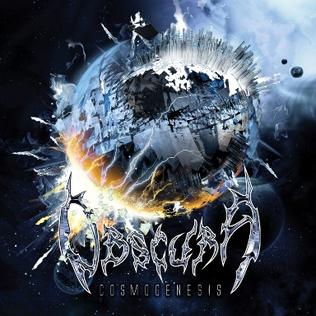Album of the Week 30-2018: Volcano – Darker Than Black

‘Darker Than Black’ is Volcano’s fourth original studio album since mid-July 2015. While that may seem a bit excessive, it is also remarkably good. Volcano was always the perfect band for anyone who could not choose between the vicious aggression of thrash metal and the melodic appeal of traditional heavy metal and ‘Darker Than Black’ is no different, though the melodic death metal influences that were prominent a few albums ago have been dialed back considerably. ‘Darker Than Black’ is one of Volcano’s more interesting albums compositionally, though it is just as capable of thrashing your face off when it needs to.
One thing that immediately stands out is that a lot of attention has been given to making the songs instantly recognizable. Every previous Volcano album has its fair share of powerful songs and catchy moments, but at times, some of the non-highlights had a tendency to sound a little too similar. However, no two songs sound alike on ‘Darker Than Black’. This is admirable, because thrash metal can be quite the limiting genre. By subtle changes in tempo, atmosphere and melodic content, the Japanese quartet managed to give each song its own face while retaining their thrashing intensity.
Speaking of atmosphere, two of the album’s most atmospheric moments have surprisingly been composed by bassist Akira. The propulsive ‘Jailbreak Vampire’ has a middle section that would not have sounded out of place on a mid-nineties Scandinavian melodeath album, while closing track ‘Guardian Deity’ immediately becomes one of the album highlights through its heroic melodicism. Guitarist She-ja wrote the rest of the material, with ‘Flight To The World’ possibly being the best opening track Volcano ever released. Classic twin guitar melodies, punishing drum work by the incredible Shun and biting thrash riffs constantly keep each other in perfect balance. And good luck getting that chorus out of your head.
Furthermore, Volcano explores the entire spectrum of heavy metal here. At the most melodic end, there are songs like the classic midtempo heavy metal of ‘Scatter Toxins’ and the relatively open ‘When You Are’, which has a gorgeous, almost bluesy guitar solo. The latter is also true for ‘Arena’, which is the perfect breather for an otherwise rather chaotic song. ‘Horror’ is a very cool riff-driven thrasher closest to the eighties Bay Area tradition, while ‘Great Crisis’ similtaneously houses some of the album’s most extreme as well as some of its most melodic sections. It should not work and yet, it does.
In fact, the entire album works. The only issue have with it is that the mastering job is a nightmare. It isn’t disruptive in every single song, but during some intense double bass sessions, the music distorts. With the songwriting generally being on par with – at times even slightly better than – the better moments of ‘Melt’, that should only be a minor complaint though. Though nothing on ‘Darker Than Black’ may be as instantly catchy as ‘Tokyo Panic’, it feels like this 53-minute collection of carefree thrashing will leave more of a lasting impact, quite likely making it the second best Volcano album after 2001’s incomparable ‘Davi’.
Recommended tracks: ‘Flight To The World’, ‘Guardian Deity’, ‘Horror’



